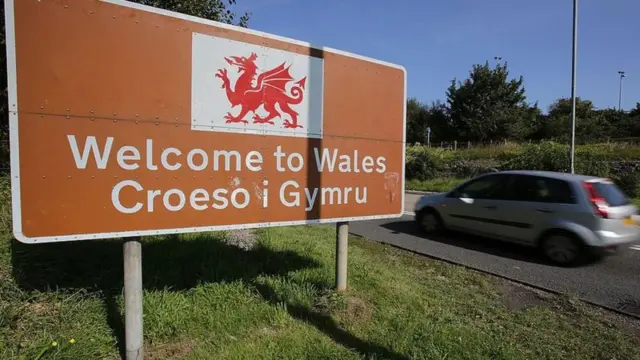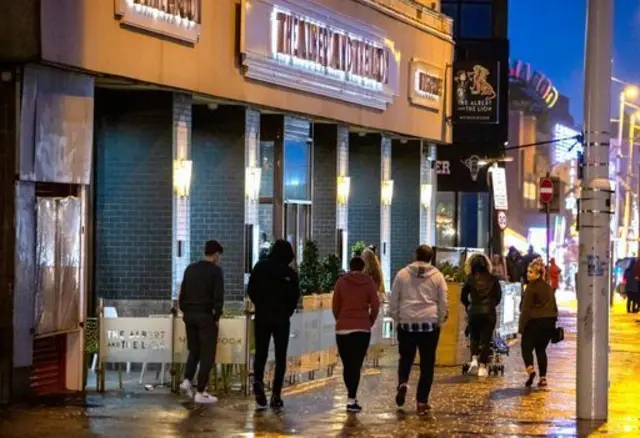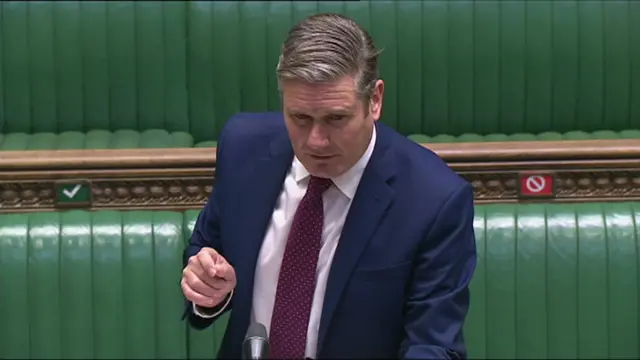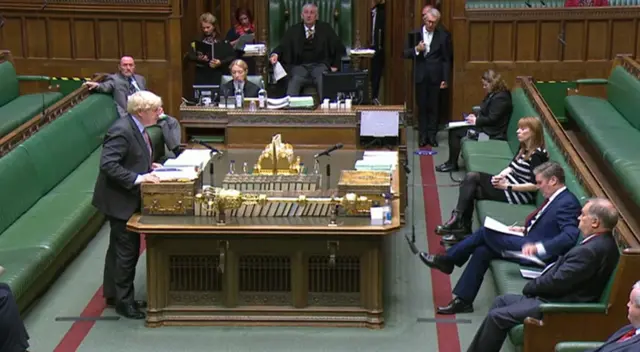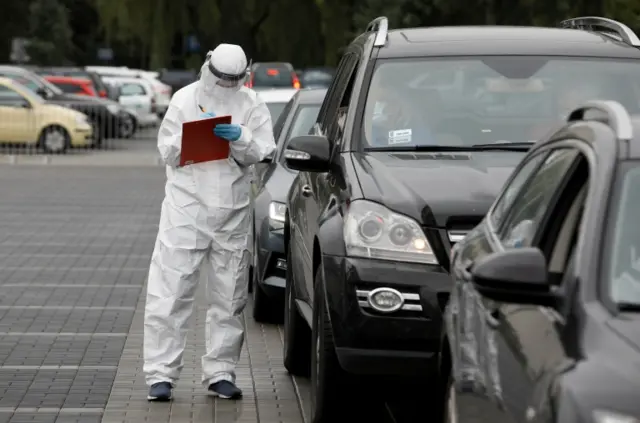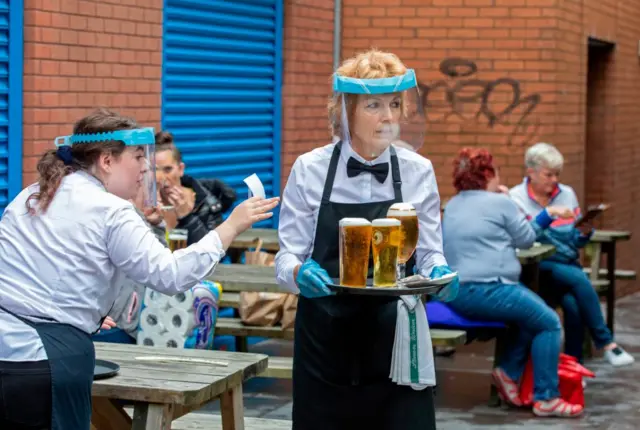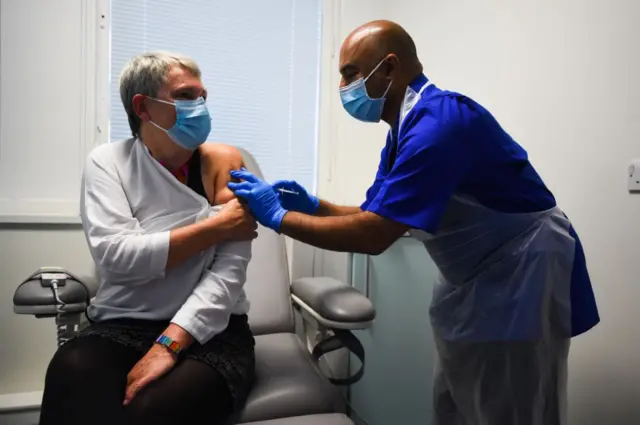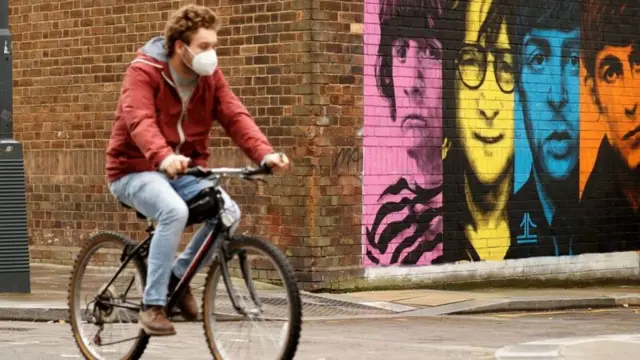PM backs his three-tier system on coronavirus in Englandpublished at 13:20 BST 14 October 2020
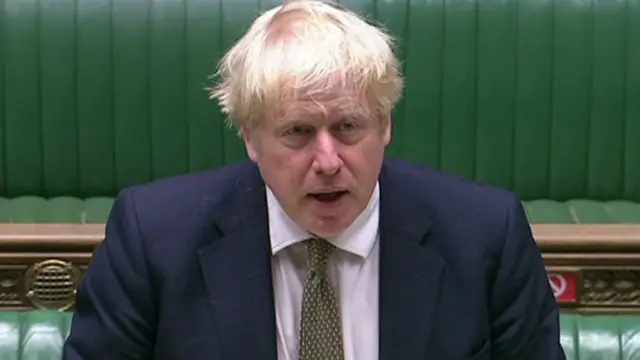
At Prime Minister's Questions today, Boris Johnson defended his new three-tier system of restrictions for England, saying it's "the right way forward".
The regional approach can reduce the rate of transmission and "bring down the virus"
Labour leader Sir Keir Starmer thinks it does not go far enough, however, and has called for a short national limited lockdown.
Most of the country is in the lowest tier, which is medium, with the Liverpool region the first to enter the highest alert level.
Mr Johnson said the plan is "to seize this moment now to avoid the misery of a national lockdown".
